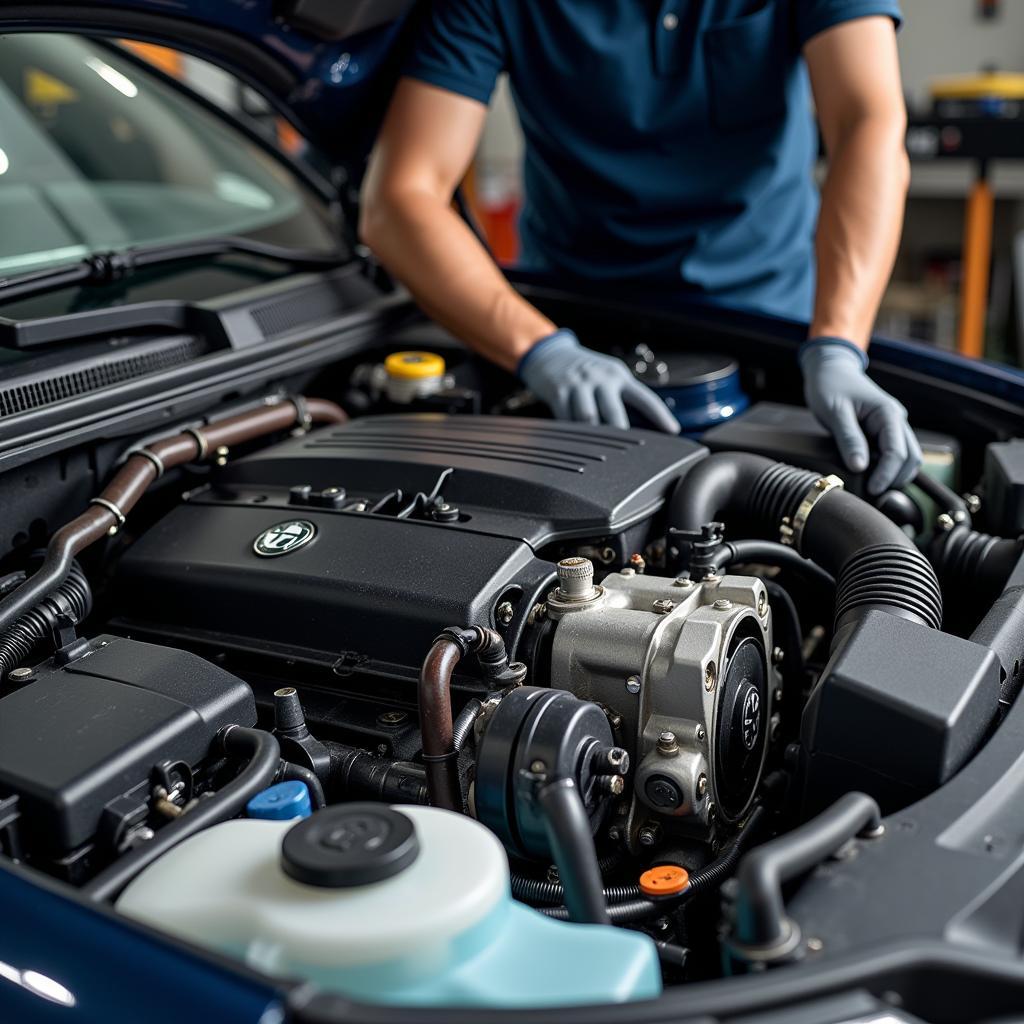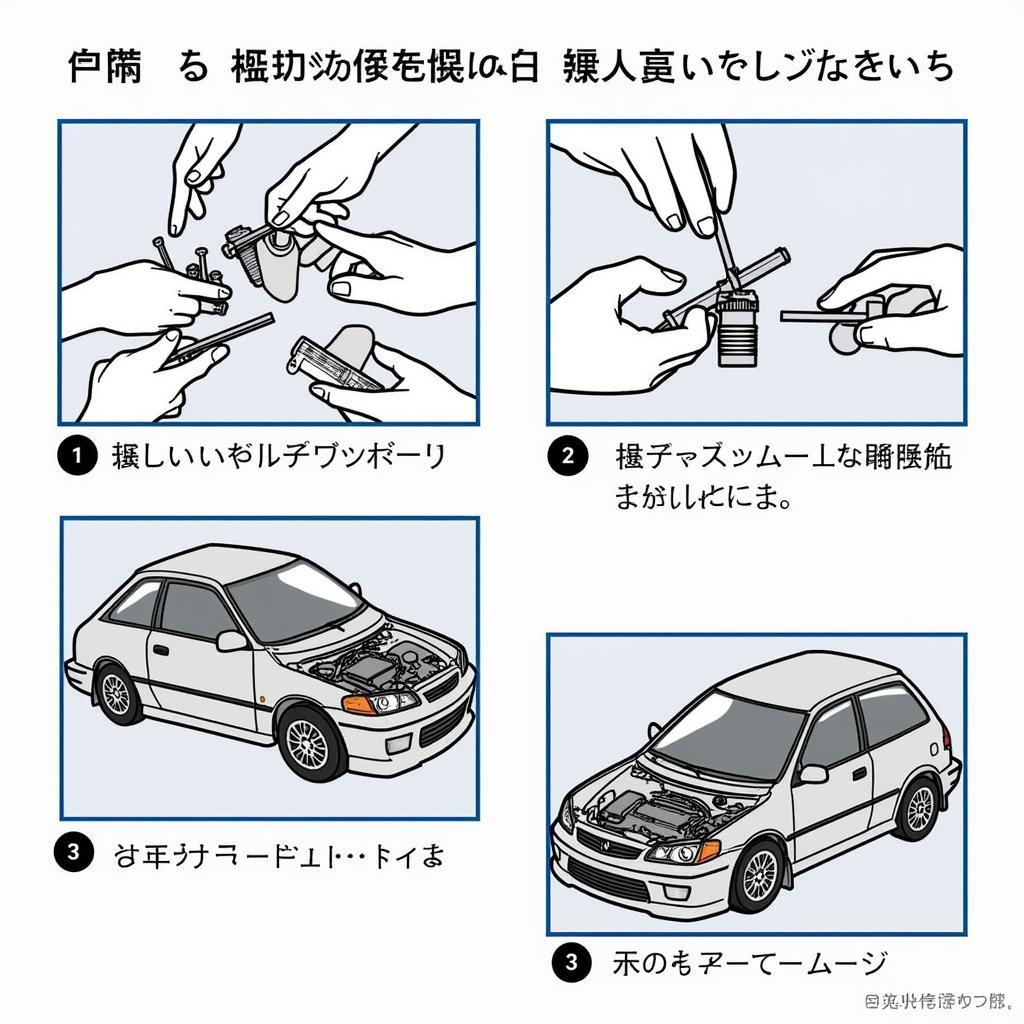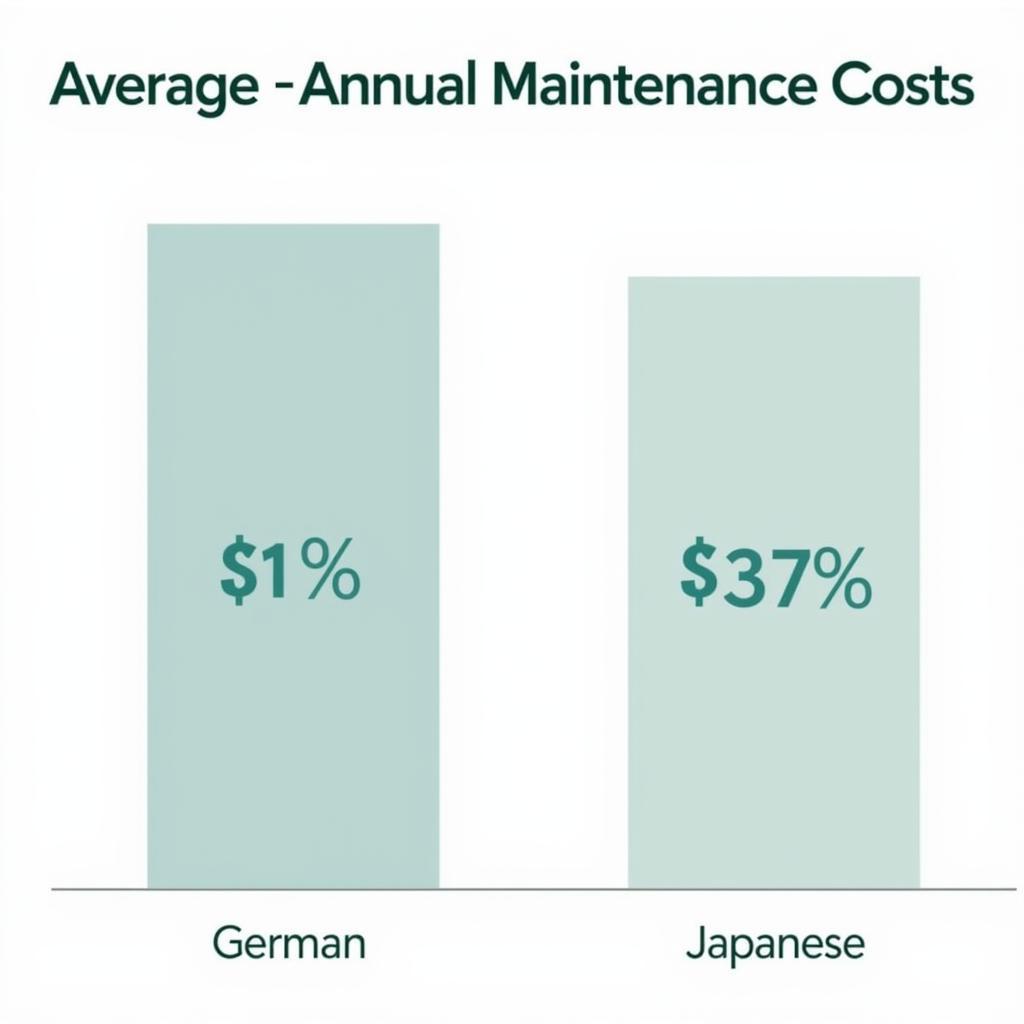German and Japanese cars are both renowned for their quality, but differ significantly in their maintenance needs. Understanding these differences is crucial for owners, mechanics, and technicians alike. This guide explores the nuances of German Car Maintenance Vs Japanese car maintenance, offering valuable insights for keeping your vehicle in top shape.
Key Differences in Maintenance Philosophies
German cars are often engineered for performance and luxury, incorporating complex systems and high-quality materials. This often translates to higher maintenance costs and more specialized expertise. Japanese cars, on the other hand, prioritize reliability and affordability, generally requiring less frequent and less costly maintenance.
German Car Maintenance: What to Expect
German cars, such as BMW, Mercedes-Benz, and Audi, demand meticulous care and adherence to strict maintenance schedules. These vehicles often utilize sophisticated technologies that require specialized diagnostic equipment and trained technicians. Neglecting these specific requirements can lead to costly repairs down the line. Regular maintenance for German cars often includes specialized synthetic oils, high-performance brake pads, and specific spark plugs designed for their high-performance engines.
Common German Car Maintenance Issues
- Electrical System Complexity: German cars are known for their advanced electrical systems, which can be prone to issues if not properly maintained. Regular inspections and prompt attention to warning lights are essential.
- Suspension Systems: Performance-tuned suspensions require more frequent checks and specialized parts, contributing to higher maintenance costs.
- Turbocharger Maintenance: Many German cars utilize turbochargers, which require regular oil changes and careful monitoring to prevent premature failure.
 German Car Engine Maintenance Essentials
German Car Engine Maintenance Essentials
Japanese Car Maintenance: A Simpler Approach
Japanese car manufacturers, such as Toyota, Honda, and Nissan, prioritize reliability and ease of maintenance. These vehicles are designed with simplicity and durability in mind, often resulting in lower maintenance costs compared to their German counterparts. Regular maintenance typically involves standard oil changes, filter replacements, and brake inspections.
Why Japanese Cars are Often Easier to Maintain
- Standardized Parts: Japanese manufacturers often utilize standardized parts, making them readily available and more affordable.
- Simpler Designs: The focus on simplicity in design generally translates to fewer complex systems and a reduced likelihood of major issues.
- Longer Service Intervals: Many Japanese cars have longer recommended service intervals, reducing the frequency and cost of maintenance.
 Japanese Car Routine Checkup and Maintenance
Japanese Car Routine Checkup and Maintenance
German Car Maintenance vs Japanese: Cost Comparison
One of the most significant differences between German and Japanese car maintenance is the cost. While both require regular upkeep, German car maintenance is generally more expensive due to the specialized parts, specialized labor, and more frequent service intervals. Japanese cars, with their emphasis on affordability and standardized parts, tend to be less expensive to maintain over the long term.
How Often Should You Service Your Car?
Whether you own a German or Japanese car, adhering to the manufacturer’s recommended service schedule is crucial. Consult your owner’s manual for specific recommendations based on your vehicle’s make and model. Regular maintenance is the key to preventing costly repairs and ensuring the longevity of your vehicle.
 Comparing Maintenance Costs: German vs Japanese Cars
Comparing Maintenance Costs: German vs Japanese Cars
Conclusion: Choosing the Right Car for You
Understanding the differences between German car maintenance vs Japanese car maintenance is essential when choosing a vehicle. While German cars offer performance and luxury, they come with higher maintenance costs. Japanese cars prioritize reliability and affordability, often resulting in a simpler and less expensive ownership experience. Consider your budget, driving style, and maintenance preferences when making your decision. For expert advice and assistance with your car maintenance needs, connect with us at AutoTipPro. Call us at +1 (641) 206-8880 or visit our office at 500 N St Mary’s St, San Antonio, TX 78205, United States.
 Expert Mechanic Advising on Car Maintenance Best Practices
Expert Mechanic Advising on Car Maintenance Best Practices
FAQ
- Are German cars more reliable than Japanese cars? Both German and Japanese manufacturers produce reliable vehicles, but Japanese cars often have a reputation for greater long-term reliability.
- What is the average cost of maintaining a German car? The average cost can vary significantly depending on the make and model, but expect to pay more for German car maintenance compared to Japanese cars.
- How often should I change the oil in my Japanese car? Consult your owner’s manual for specific recommendations, but typically every 5,000-7,500 miles.
- Do I need a specialized mechanic for my German car? While not always required, it’s often recommended to use a mechanic experienced with German cars due to their complex systems.
- Are Japanese car parts easier to find? Yes, Japanese car parts are generally more readily available and affordable due to standardization.
- What are some common problems with German cars? Electrical issues, suspension problems, and turbocharger failures are some potential issues to be aware of.
- What are some common problems with Japanese cars? While generally reliable, some older models may experience issues with rust or transmission problems.




Leave a Reply